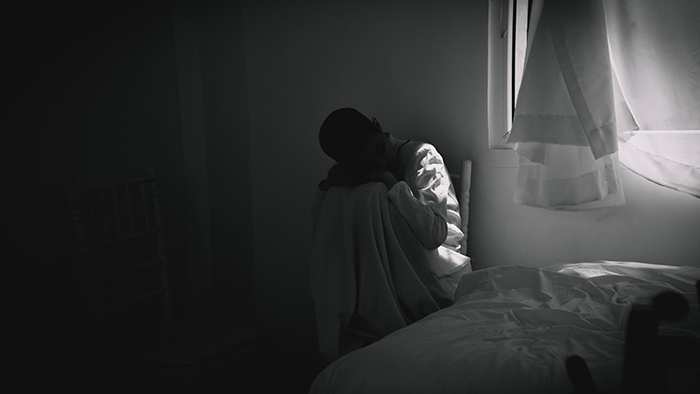An unprecedented number of anti-abortion bills are making their way through the Legislature this session, including a ban on using medications that physicians say would effectively end all abortions in Wyoming
Senate File 133, “Prohibiting abortifacients and chemical abortions,” was approved by the Senate Health, Labor, and Social Services Committee by a 4 – 1 vote last week.
Four other bills sponsored by “pro-life” legislators will be considered at a hearing by the committee’s House counterpart on Wednesday.
Banning abortion drugs
Several physicians testified virtually against SF-133, including Dr. Brent Blue of Jackson, who until recently was the only abortion provider in the state.
“This legislation inserts government into the very most intimate part of a woman’s life,” Blue said. “Terminations are never a happy choice. They are always a difficult choice. It should be a safe choice, it should be a choice that women make on their own. Government should not have anything to do with it.”
SF-133 would outlaw two drugs and their generic equivalents: Mifepristone and Misoprostol, which are used to terminate pregnancies between four and 10 weeks. These drugs are not available over-the-counter.
“These medications essentially cause a miscarriage of a fetus the size of a common pea or lima bean.”
The drugs are commonly used by OB/GYNs to induce labor during the delivery of a live baby, and to help women dispel tissue when experiencing a miscarriage.
SF-133 would criminalize those practices, as well.
The bill would make it a felony punishable by up to 14 years in prison and/or a $10,000 fine to manufacture, distribute, prescribe, dispense, sell, transfer or use either of the two drugs.
The bill’s sponsor, Sen. Tim Salazar (R-Riverton) claimed the procedure is “a barbaric death sentence carried out by medically-induced starvation.”
Blue explained that, in fact, in a chemical abortion, the fetus feels no pain.
“These medications do not induce starvation. They essentially cause a miscarriage of a fetus the size of a common pea or lima bean,” he said.
Push women out of state
Dr. Rene Hinkle, a Cheyenne OB/GYN, does not perform elective abortions. But SF-133 “would make it harder for me to do my job,” she said, because she uses the drugs to assist women in the midst of difficult miscarriages.
Jackson family physician Dr. Katie Noyes said the bill would not reduce the demand for abortion, since women seeking the procedure would travel to neighboring states.
“It will harm Wyoming women by forcing them to travel further, pay for lodging, and lose more work to obtain a desired abortion,” Noye said. She called abortions using the two drugs as very safe and effective.
“This is a very clear example of government interference in a very private, personal health care decision,” Noyes added.
A law is a law
Sharon Breitweiser of NARAL Pro-Choice of Wyoming said all similar laws passed by states have been declared unconstitutional by courts as a violation of Roe v. Wade, the landmark 1973 U.S. Supreme Court decision that established a women’s legal right to have an abortion.

Sen. Lynn Hutchings (R-Cheyenne), a vocal anti-abortion legislator, incorrectly called Roe v. Wade “an opinion, not a law.”
It is, quite literally, a law.
Undeterred by facts, Hutchings said, “Opinions can be changed, laws can be changed. As legislators it is our duty to try to protect life.”
“States cannot regulate abortion in the first trimester,” Breitweiser noted. “There is a right to privacy for the woman to obtain that procedure. It was declared safe and legal by the FDA 20 years ago.”
Breitweiser said doctors who perform abortion “are using this safe, early medication abortion as opposed to a surgical option.”
She estimated between 70 and 100 abortions are performed annually in Wyoming, almost all using the medications Wyoming legislators are trying to outlaw.
An anti-abortion deluge
In 2017, the Wyoming Legislature passed its first restrictions on abortion in 28 years. Since then, pro-life lawmakers have tried every session to pass laws that drastically interfere with a woman’s right to make her own reproductive decisions.
Four other anti-abortion measures will be heard Wednesday morning by the House Labor, Health and Social Services Committee.
- HB-253, “University of Wyoming-ban on funding abortions,” would prohibit UW from spending funds on group insurance plans that cover abortions. This bill is a follow-up to last year’s successful use of the state budget to bully the university into disallowing students to buy insurance through the school that covers abortions.
- HB-161, “Human life equality-prohibiting discriminatory abortions,” is a new topic for Wyoming lawmakers. It would prohibit abortions of an “unborn child, human fetus or human embryo” based on sex, race, color, national origin or ancestry, and any diagnosed or potential disabilities. Violation would be a felony punishable by up to 14 years in prison.
- A new version of a Senate bill that was defeated last year is HB-134, “Human heartbeat protection act.” It seeks to make it illegal to perform an abortion after a detectable fetal heartbeat can be heard. Sponsor Rep. Chuck Gray (R-Casper) has 17 House co-sponsors and six in the Senate.
- HB-70, “Abortion-informed consent,” outlines new requirements for doctors to inform patients in writing that they may view an ultrasound and hear a heartbeat if one is audible. It would allow the Board of Medicine to take disciplinary action, including revoking or suspending a license to practice.
- The Senate has already passed SF-34, “Born alive infant-means of care,” which has yet to be assigned to a House committee. A similar version of the bill, which requires physicians to provide medical care for any child born alive after an attempted abortion, passed the Legislature last year but Gov. Mark Gordon vetoed it.
The governor said existing laws already guarantee appropriate medical care in this situation.

